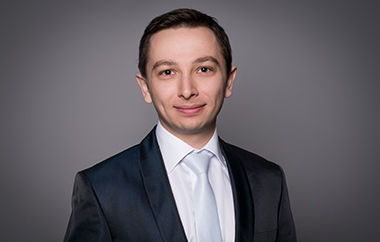PhD Student in Environmental Bioengineering at Tel Aviv University, Israel
Research focus: interaction between seaweed and bacteria for improving the production of biofuel and protein out of seaweed
Mark focuses on simultaneously producing biofuels, proteins, and chemicals from seaweeds cultivated offshore. His main interest lies in developing a sustainable infrastructure in order to meet the growing world population’s demand for food and biofuels. Bioethanol, obtained from i.e. sugarcane or corn, has a negative impact on the environment as well as on food prices. Within his research, he isolated bacteria and analysed the influence on the seaweed growth rate and sugar composition. He found out that the utilisation of some bacteria leads to an increase of the ethanol production. His goal is to examine how those bacteria influence the seaweed’s chemical composition.
Apart from this, Mark works on identifying proteins and allergens, so alternative proteins, which are safe for human consumption, can be created out of seaweed. Furthermore, Mark developed a method for detecting the toxins that lead to a reduction of the efficiency of the fermentation process for bioethanol mass production.
CV as submitted for the Green Talents award (2018):
Tel Aviv University, Israel
Research focus: interaction between seaweed and bacteria for improving the production of biofuel and protein out of seaweed
Mark focuses on simultaneously producing biofuels, proteins, and chemicals from seaweeds cultivated offshore. His main interest lies in developing a sustainable infrastructure in order to meet the world population’s demand for food and biofuels. Bioethanol, which is delivered by resources such as sugarcane or corn, has a negative impact on the environment as well as food prices due to the demand for potable water and lands for agriculture. Within his research activity, he isolated bacteria and analysed the influence on the seaweed growth rate and sugar composition. He found out that the utilisation of some bacteria leads to an increase of the ethanol production per algae dry weight. His further goal is to examine how those bacteria influence the seaweed’s chemical composition.
Apart from his research, Mark works on projects that deal with the development of an efficient biorefinery. By identifying proteins and allergens, alternative proteins, which are safe for human consumption, can be created out of seaweed. Mark developed a method for detecting the toxins that lead to a reduction of the efficiency of the fermentation process for bioethanol mass production. Furthermore, he is very engaged in environmental projects for children, showing them sustainable perspectives. In the course of his project, he aims at closing the scientific gap between developing an efficient biorefinery for renewable energy and food production. Mark hopes to open the door to other sustainable solutions for food, animal feed, energy generation, chemical production, water treatment and recycling processes. During the Green Talents Science Forum in Germany, Mark wishes to be part of a team of sustainability researchers and work on feasible solutions for climate change.
The jury acknowledges Mark’s success in integrating biological understanding in seaweed-associated bacteria and the expansion of bio-based processes. This approach could play an important role in the development of sustainable biomass utilisation infrastructure in Germany.






